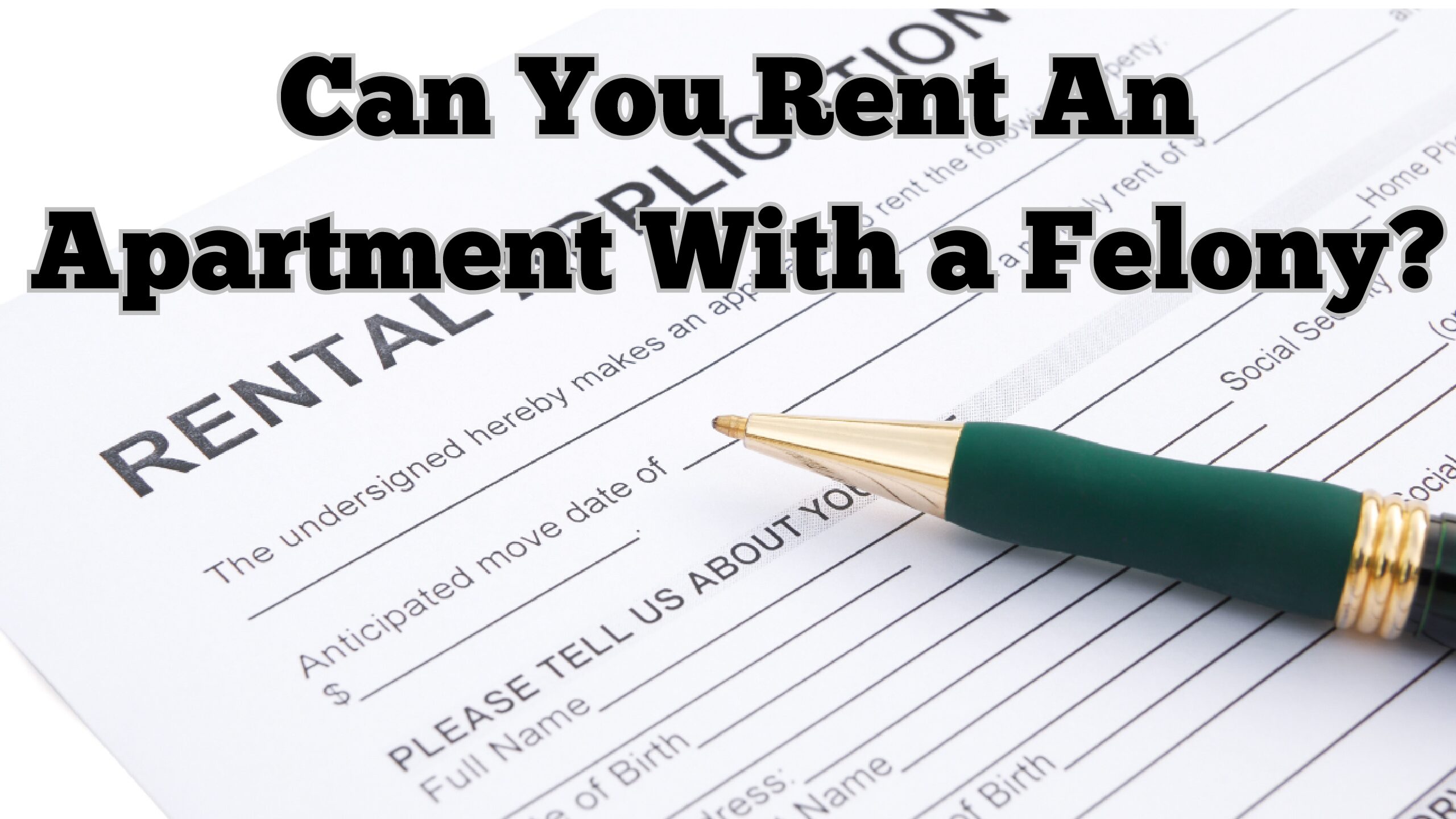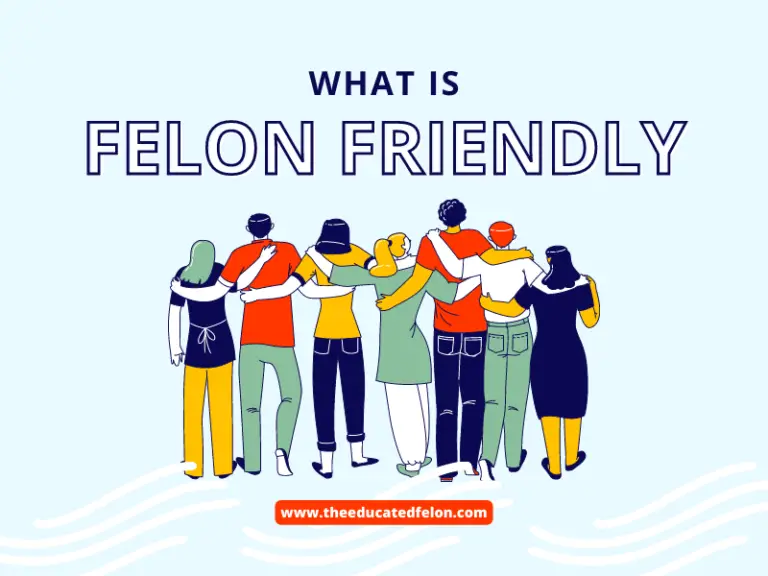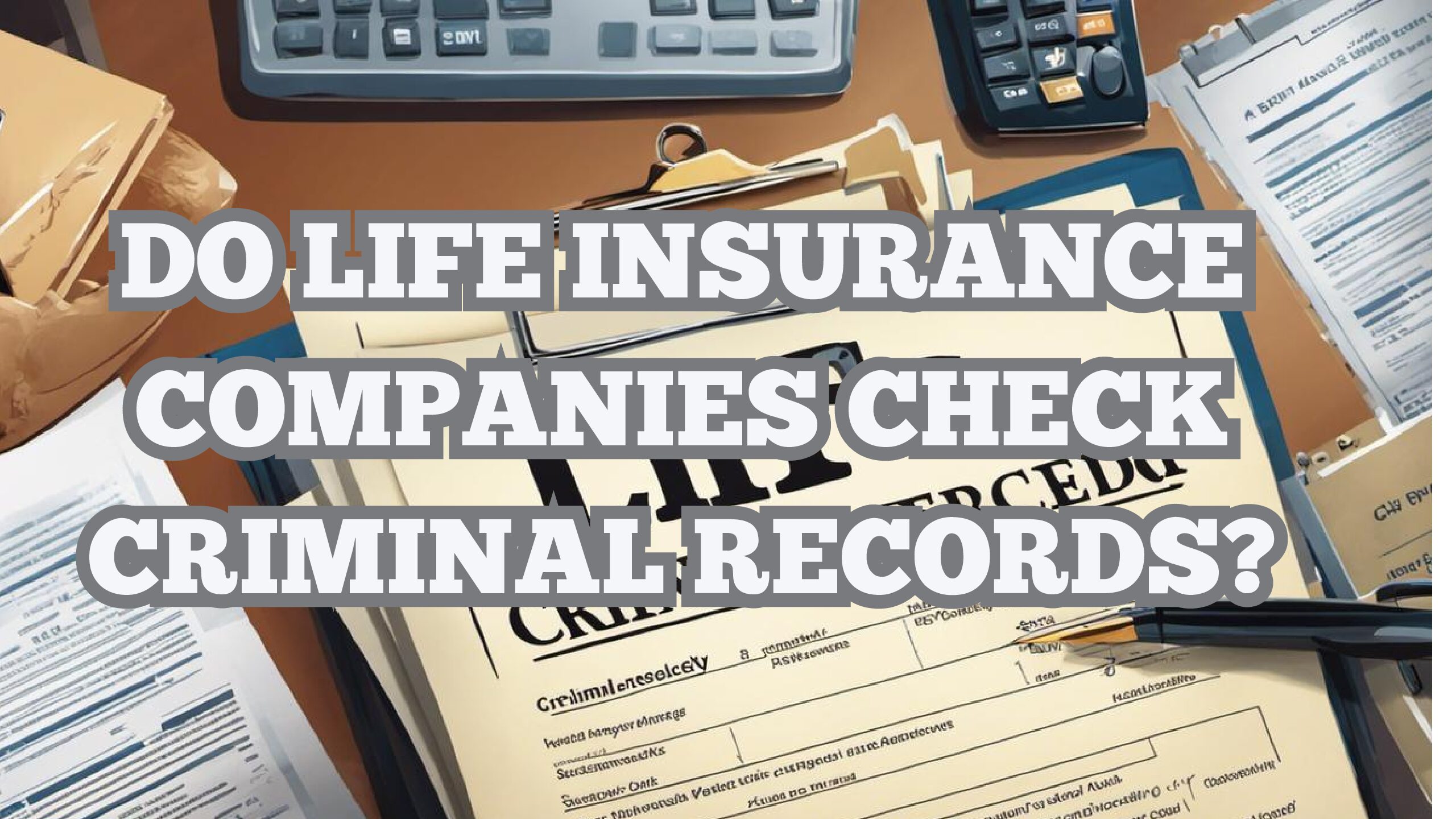CAN YOU RENT AN APARTMENT WITH A FELONY
Finding a place to live can already be a challenge, and it becomes even more daunting when navigating a rental market with a felony on your record. The barriers that someone with a criminal record often experience in their housing search are owed in part to federal and state laws, landlords’ considerations during a background check, and the type of felony committed.
However, one should be aware that finding a place to live with a felony does not necessarily mean it is impossible – it is just that the individual must be more resourceful in their endeavors. An insightful understanding of how all these elements contribute to housing discrimination against a convicted felon and the adoption of targeted strategies can surely aid in overcoming these challenges.
This post aims at shedding light on these aspects, informing a felon about their rights, suggesting useful tactics to elevate their rental applications, and offering a direction towards alternatives for those who might find traditional rentals unattainable.
First Things First… Understanding the laws against Felon Discrimination
Federal Laws and the Fair Housing Act
Understanding the federal law is critical when it comes to the issue of renting an apartment with a felony. The Fair Housing Act, implemented in 1968, is the primary federal law that covers housing discrimination. It prohibits discrimination on the basis of race, color, national origin, religion, sex, disability, and familial status. However, it does not include any explicit protections for those with a criminal background, including that of felons.
The U.S. Department of Housing and Urban Development (HUD) released guidance in 2016 explaining that while the FHA does not offer explicit protections for those with criminal records, landlords who enforce a blanket ban on renting to individuals with a criminal history may still violate the FHA. This is due to the fact that certain racial and ethnic groups in the U.S. have a disproportionate number of arrests and convictions.
This means that if a housing policy that seems neutral on its face but ends up having a disparate impact on a particular group, it may be deemed discriminatory under the FHA.
As such, landlords should assess applicants on a case-by-case basis, considering factors like the nature and severity of the crime, and how much time has passed since the crime was committed.
State Laws Against Felony Discrimination
In addition to federal laws, some states have enacted laws that provide additional protection for felons seeking to rent an apartment. For instance, California’s Fair Employment and Housing Act prohibits landlords from looking into an arrest record that did not result in a conviction.
Also in California, passed in 2020, the Fair Chance Act makes it illegal for landlords of properties with 15 or more units to ask about criminal history until a conditional offer of rental has been made.
Washington State’s Residential Landlord-Tenant Act also bans landlords from discriminating against renters based on their criminal record, unless there is a legitimate business reason such as the person being on the sex offender registry for a crime committed as an adult.
Though state laws on this topic vary tremendously, it’s important for those with a felony conviction who are trying to secure rental housing to familiarize themselves with state-specific laws and regulations. Some states may provide greater protections against discrimination than others.
Legal Considerations on Rental Opportunities
There are some legal rules that landlords must follow when they rent properties, but they also have specific freedoms, especially when it comes to potential tenants’ criminal history. Running background checks on prospective tenants is commonplace to discern their reliability, and during these checks, decisions may be influenced by factors such as the seriousness of past crimes committed, the length of time since the conviction, and efforts made towards rehabilitation. On the other hand, landlords are obliged to steer clear of discriminatory practices.
CAN YOU RENT AN APARTMENT WITH A FELONY?
Although securing an apartment with a felony conviction will obviously present one with more challenges, it is definitely not unattainable. Understanding the law, researching the availability of properties in your local housing market, and presenting yourself in a positive light to prospective landlords will highly improve your chances.
If you are a felon, you can increase your chances of securing a rental property by providing evidence of consistent income, good references, and by showing progress made in rehabilitation terms. In some instances, having someone co-sign your lease, or proposing to pay an additional security deposit could help sway a landlord’s decision, by putting their mind at ease from concerns.

WHAT IS THE IMPACT OF A FELONY ON YOUR RENTAL APPLICATION?
It is crucial to grasp that background checks conducted by landlords are a reality and will include a detailed look at your criminal history. A major part of this that landlords will highly consider is whether or not you have a felony record, as this can significantly affect your chances of obtaining a rental property.
Given the complex nature of this situation, careful and thoughtful understanding of the implications is paramount. Having a felony on your record can result in rejection due to landlords’ apprehensions about the safety and security of their property, as well as their responsibility towards the wellbeing of their community or neighborhood residents.
Different Types of Felonies
Many landlords make their decision based on the type of felony committed. Consider, for example, the difference between violent crimes, sex offenses, and drug-related felonies.
Violent Crimes
These include offenses such as murder, assault, armed robbery, and others that are considered violent in nature. Landlords might fear that a tenant with a violent history might pose an elevated risk to the safety of the community.
Sex Offenses
Registered sex offenders often face even more stringent landlord scrutiny. Properties in proximity to schools, parks, and other areas with high child concentrations will most likely reject applications from registered sex offenders due to legal distance restrictions.
Drug-related Felonies
Landlords might fear an increased probability of drug-related activity on the property. This could potentially lead to property damage or nuisance to other residents, resulting in higher management costs or possible litigation.
These scenarios do not guarantee that a landlord will perceive every felony in the same light; however, they are standard situations in which a landlord may choose not to accept a rental application.
Rental Screening and Felonies
The vast majority of landlords in the United States rely on background checks when vetting prospective tenants. These checks are a comprehensive look into an individual’s history, bringing to light various elements of their past, including criminal records. This practice gives landlords a broader understanding of who might be leasing their properties.
It’s essential to note that a felony isn’t an automatic disqualification for all landlords. There are those who are more understanding and exercise leniency with applicants who have older convictions, specific types of felonies, or have shown significant positive changes since their conviction. Landlords of smaller properties or private landlords often have more flexibility and discretion in choosing their tenants.
So, despite a felony making the process of renting an apartment more challenging, it does not automatically exclude the possibility. Felons seeking tenancy are encouraged to be open about their criminal past, provide references to establish their trustworthiness, and explore the option of assistance from organizations that facilitate housing for ex-offenders.

HOW DO YOU RENT AN APARTMENT WITH A FELONY ON YOUR APPLICATION?
Being transparent about your felony conviction is critical when attempting to rent an apartment. It might seem convenient to skip over this aspect of your past, but most landlords will conduct thorough background checks and will uncover any interesting facts about your life.
It’s best to face this head-on, offer an honest account of your past, and emphasize the positive changes made since the conviction. Try your best to paint a vivid picture of personal growth and transformation, highlighting why they can trust you as a tenant.
Presenting References
Having solid references can positively impact a landlord’s decision when renting to individuals with a criminal background. These could be from previous landlords who can vouch for you as a responsible and reliable tenant. Employers or community leaders could also provide references, attesting to your character, steady employment, and ability to pay rent on time.
You may also want to check out: The Felon’s Guide to Collecting Ass-Kicking Reference Letters
Demonstrating Evidence of Rehabilitation
Providing proof of rehabilitation is key to negating a landlord’s potential fears about criminal recidivism. This might include proof of successful completion of any required community service, probation/parole periods, or counseling/rehabilitation programs related to your offense. Additionally, a certificate of good conduct or letters acknowledging your completion of certain rehabilitation programs can also depict a positive image to the landlord, helping to alleviate concerns.
Landlord Concerns
Recognize that landlords have serious reservations when it comes to a convicted felon renting an apartment. They want to ensure the safety and welfare of their property, but for the other tenants as well. Acknowledging these concerns and covering them adequately in your application or when discussing with the landlord can help to build trust.
Being Financially Responsible
Showing that you are financially reliable can help reassure a landlord that you are a stable tenant. Providing proof of a steady income, demonstrating a habit of paying bills on time, and showing a good credit score can all help a landlord feel more confident in renting an apartment to you.
Consider Hiring a Professional
Retaining counsel may be beneficial, especially when landlords are hesitant due to your felony conviction. They can guide you through the process, potentially increasing your chances of renting.
Seek Out Felon-Friendly Landlords and Programs
There’s an increasing number of landlords and programs specifically tailored to assist felons in finding housing. Online databases, local church groups, or ex-offender programs often provide resources that can connect you with these ‘felon-friendly’ landlords.
You may also want to check out: What Does Felon Friendly Mean?
Ensuring a Clean and Sober Lifestyle
Maintaining a clean and sober lifestyle after your conviction is essential. This could include involvement in rehabilitation programs, Alcoholics or Narcotics Anonymous, or even religious communities. Show proof of these involvements to your prospective landlord as proof of your commitment to a law-abiding lifestyle.
It’s crucial to understand that the steps provided are not exhaustive; however, they prove to show commitment towards trustworthiness and personal rehabilitation. By demonstrating these qualities and implementing these practices, felons increase their chances of successfully obtaining an apartment rental.

Available Alternatives for Felons Struggling to Rent an Apartment
Difficulties in Renting
It’s understandable that securing accommodation may pose as a challenge for individuals with a felony record due to potential discrimination and specific stipulations present in rental applications. Nevertheless, several alternative routes are available to assist you in securing tenancy.
Halfway Houses
Halfway houses serve as a crucial bridge between incarceration and re-entry into society. These houses often partner with local corrections departments and offer a structured, stable environment for former prisoners. Residents typically share rooms, pay rent, participate in household chores, and engage in employment or education, either inside or outside the house. While most halfway houses have a specific period of residency, usually around six months, they provide a critical space for felons to adapt to life outside of prison.
Sober Living Homes
For felons struggling with substance use disorders, sober living homes can also be a viable option. These homes provide substance-free environments, encouraging residents to maintain sobriety. Similar to halfway houses, residents share rooms, pay rent, and are often involved in recovery and self-help programs. Living in a sober home can help former prisoners develop a solid record of responsible behavior, promote sobriety, and build a network of supportive peers.
Non-profit Organizations for Housing Assistance
Non-profit organizations across the country help those with criminal backgrounds secure housing. The National Reentry Resource Center, for example, offers a comprehensive list of organizations that provide housing assistance to individuals returning from prison. Other organizations, like Help For Felons, are dedicated to providing information and resources to assist felons with their housing needs.
Government-Subsidized Housing Programs
Government-subsidized housing programs like Section 8 vouchers can potentially provide an affordable housing option for felons, though eligibility requirements may vary based on the type of felony committed. Under these programs, the government pays a portion of the rent, making it more affordable for low-income individuals and families. However, rules and regulations around felons and subsidized housing vary greatly, so it’s important to consult with a local housing authority or legal expert.
Additional Resources
Other resources available for felons struggling with housing include the U.S. Department of Housing and Urban Development (HUD) and the Federal Housing Administration (FHA). HUD offers resources and programs directly pertaining to individuals with criminal records, providing protections and guidance to ensure they don’t face undue discrimination when seeking housing.
Furthermore, HUD’s Reentry Housing Toolkit (see link below) provides strategies and resources for those working to end homelessness and housing instability among people exiting prisons or jails. The FHA, on the other hand, offers loan programs that can help felons become homeowners if they meet certain criteria.
You may also want to check out: Can a Felon Get a Mortgage With a Felony Conviction?
Navigating the process of securing a rental with a felony on your record may seem daunting. However, multiple resources are available to assist felons in their pursuit of a suitable living situation.

Despite the challenges faced by felons in securing housing, it is important to understand that the barriers are not absolute; there are ways to increase your chances of securing housing and system supports available for those in need. Armed with knowledge about laws, and the willingness to be transparent regarding your past, can often help in overcoming the obstacles a criminal record often presents during a property search.
–The Educated Felon







